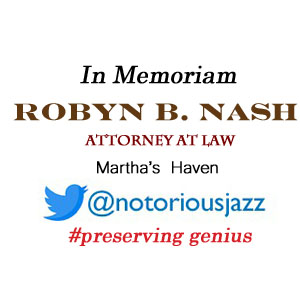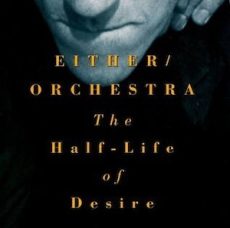
Daily Dose Of Jazz…
Russ Gershon was born on August 11, 1959 and grew up in Westport, Connecticut. He attended Harvard University where he received a degree in philosophy and was a disc jockey, jazz director and station manager at Harvard’s WHRB radio station. He attended Berklee College of Music for a year in 1984 and the following year the Either/Orchestra played its first live show at the Cambridge Public Library.
Founding Accurate Records he has released albums by Morphine, Medeski Martin & Wood, the Alloy Orchestra, Ghost Train Orchestra, the Either/Orchestra, Dominique Eade, and Garrison Fewell. He has been a member of rock bands and has worked as a studio musician as well as performing in Boston, Massachusetts.
In 1997 Russ played arrangements of Ethiopian popular music with the Either/Orchestra. This drew the attention of Francis Falceto, who produced the “Éthiopiques” series of albums to document 20th century Ethiopian music. Through Falceto’s connections his band were invited to Addis Ababa in 2004 and became the first American big band to perform in Ethiopia since Duke Ellington’s in 1973.Their principal concert was released as the album Ethiopiques 20: Live in Addis and led to working with Ethiopian musicians such as Mahmoud Ahmed, and appeared with Ahmed’s band at Carnegie Hall in 2016.
Saxophonist, flutist, composer, and arranger Russ Gershon continues to perform with the Either/Orchestra.
More Posts: arranger,bandleader,composer,flute,history,instrumental,jazz,music,saxophone
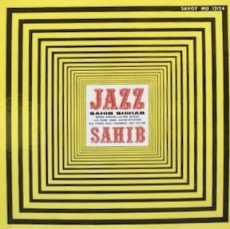
Daily Dose Of Jazz…
Sahib Shihab was born Edmund Gregory on June 23, 1925 in Savannah, Georgia. Schooled in New York from age 3, he first played alto saxophone professionally for Luther Henderson at 13. He studied at the Boston Conservatory, and played in and around New York with Art Blakey, Gigi Gryce, Benny Golson, Thelonious Monk, Oscar Pettiford, Dizzy Gillespie. He toured with the bands of Fletcher Henderson, Buddy Johnson, Roy Eldridge, Andy Kirk, Duke Ellington, Count Basie and the original 17 Messengers of Blakey.
During the late 1940s, Shihab played with Thelonious Monk, and on July 23, 1951 he recorded with Monk that was later issued on the album Genius of Modern Music: Volume 2. During the decade he recorded with Art Blakey, Kenny Dorham and Benny Golson. The invitation to play with Dizzy Gillespie’s big band saw his switch to baritone saxophone.
Between 1952 to 1955 he toured with Illinois Jacquet in Europe, as well as with Coleman Hawkins and Sarah Vaughn and toured with Dakota Stanton from 1956 to 1958. He was one of the musicians who showed up for the Art Kane photograph A Great Day In Harlem. Closing out the Fifteies he toured Europe with Quincy Jones, and subsequently settled in Scandinavia in 1960, married and raising a family. Shihab, disillusioned with racial politics in the United States, decided around this time to move to Europe.
As an educator he worked for Copenhagen Polytechnic and wrote scores for television, cinema and theatre. He composed and arranged for Swedish and Danish radio orchestras. He went on to perform with bassist Niels-Henning Ørsted Pedersen and together with pianist Kenny Drew, he ran a publishing firm and record company. Through the Sixties he joined the Kenny Clarke/Francy Boland Big Band and remained a member of the band during its 12 years existence.
Returning to the United States in 1973 he toured with Quincy Jones and The Brothers Johnson. He returned to Copenhagen, Denmark three years later, where he produced albums for Metronome Records, along with Kenny Drew. The album is titled Brief Encounter, and features the voices of Debby Cameron and Richard Boone. At decade’s end he started a record company with Kenny Drew called Matrix and spent his remaining years between New York and Copenhagen, performed in partnership with Art Farmer and led his own jazz combo called Dues.
Hard bop baritone, alto, and soprano saxophonist and flautist, composer, arranger, producer and educator Sahib Shihab, who beginning of 1986 was a visiting artist at Rutgers University, died from cancer on October 24, 1989, in Nashville, Tennessee at age 64.
More Posts: arranger,bandleader,composer,educator,flute,history,instrumental,jazz,music,producer,saxophone
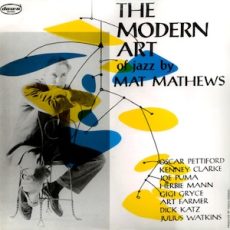
Daily Dose Of Jazz…
Mat Mathews was born Mathieu Hubert Wijnandts Schwarts on June 18, 1924 in The Hague, Netherlands and learned to play accordion while the country was still under the Nazi rule during World War II. It was after hearing Joe Mooney on a radio broadcast after the war that he decided to play jazz.
Moving to New York City in 1952, Mat formed a quartet which included Herbie Mann. He also worked and or recorded with Kenny Clarke, Art Farmer, Percy Heath, Carmen McRae, Oscar Pettiford, Joe Puma, Milt Jackson and Julius Watkins.
He worked mainly as a session musician in the late 1950s, and returned to the Netherlands in 1964, where he worked as an arranger, session musician, and record producer. In the 1970s, he again worked in the United States with Charlie Byrd, Doug Duke, Marian McPartland, and Clark Terry.
Accordionist, arranger, record producer Mat Mathews, who recorded eight albums as a leader, died on February 12, 2009 in Clarence Center, New York.
More Posts: accordion,arranger,bandleader,history,instrumental,jazz,music,record producer
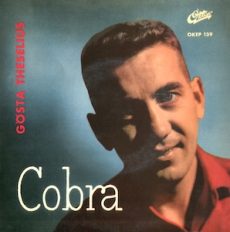
Daily Dose Of Jazz…
Gösta Theselius (was born June 9, 1922 in Stockholm, Sweden and was the younger brother of musician Hans Theselius.
He worked in the 1940s with a number of European big bands, including those of Thore Jederby, Hakan von Eichwald, Sam Samson, Lulle Elboj, and Thore Ehrling.
He played jazz into the 1950s, both as a saxophonist and a pianist. The latter instrument with Benny Bailey, Arne Domnerus, James Moody, and Charlie Parker, and composed copiously for film in the 1950s and 1960s.
Arranger, composer, film scorer, pianist and saxophonist Gösta Theselius died in Stockholm on January 24, 1976.
More Posts: arranger,bandleader,composer,film scorer,history,instrumental,jazz,music,piano,saxophone

Daily Dose Of Jazz…
Gene J. Bertoncini, born April 6, 1937 in New York City and grew up in a musical family. His father played guitar and harmonica, his brother played accordion and keyboards. He began playing guitar at age seven and by age sixteen was appearing on television.
After high school he attended the University of Notre Dame, where, in 1959, he earned a Bachelor of Science degree in Architectural Engineering. During his matriculation he played clarinet in the Notre Dame marching band. His first guitar teacher was Johnny Smith.
Gene entered the Marines, then moved to Chicago, Illinois where he became immersed in the jazz scene, working with Carmen McRae. Returning to New York City, Gene played with vibraphonist Mike Mainieri and then in one of Buddy Rich’s ensembles. He was a member of the Tonight Show band.
He has worked with Burt Bacharach, Tony Bennett, Paul Desmond, Benny Goodman, Lena Horne, Hubert Laws, Michel Legrand, Charles McPherson, Wayne Shorter, Clark Terry, Nancy Wilson and bassist Michael Moore.
At the advice of his teacher Chuck Wayne, he began studying classical guitar and using the instrument for jazz, Latin and Brazilian music styles. Back in New York City, from 1990 to 2008, Bertoncini played solo guitar on Sunday and Monday evenings at the Bistro La Madeleine on West 43rd Street. He recorded two albums of solo guitar arrangements, Body and Soul and Quiet Now, and published ten of these arrangements in Gene Bertoncini Plays Jazz Standards.
Bertoncini has been on the faculties of William Paterson University, New York University, Eastman School of Music, New England Conservatory, the Banff School of Fine Arts in Alberta, Canada and on the staff of the Tritone Jazz Fantasy Camps.
Guitarist, arranger, and educator Gene Bertoncini continues to perform, arrange, record and educate.
More Posts: bandleader,guitar,history,instrumental,jazz,music




